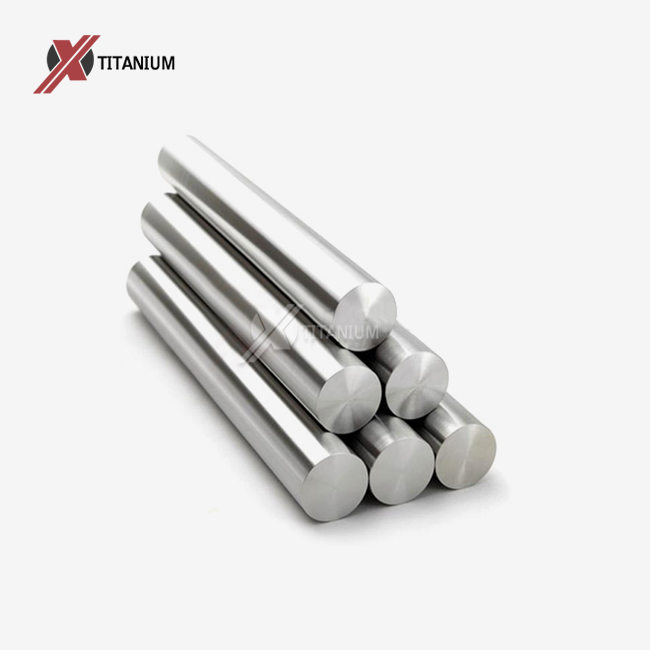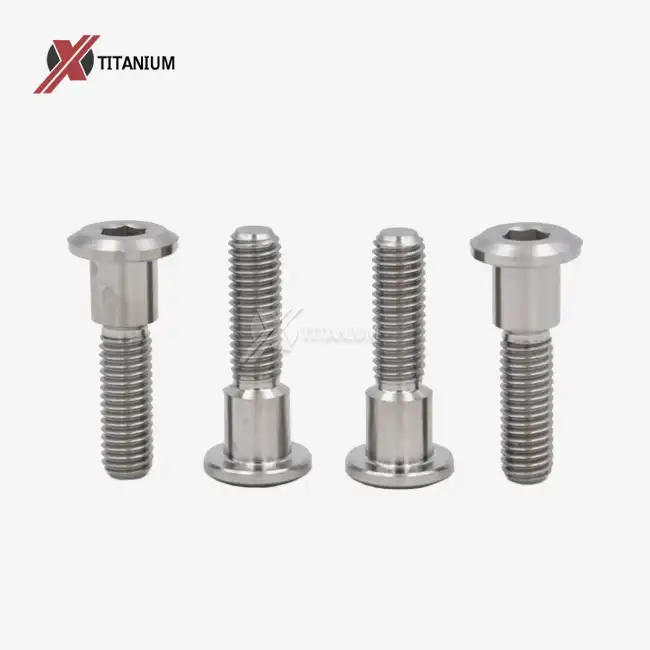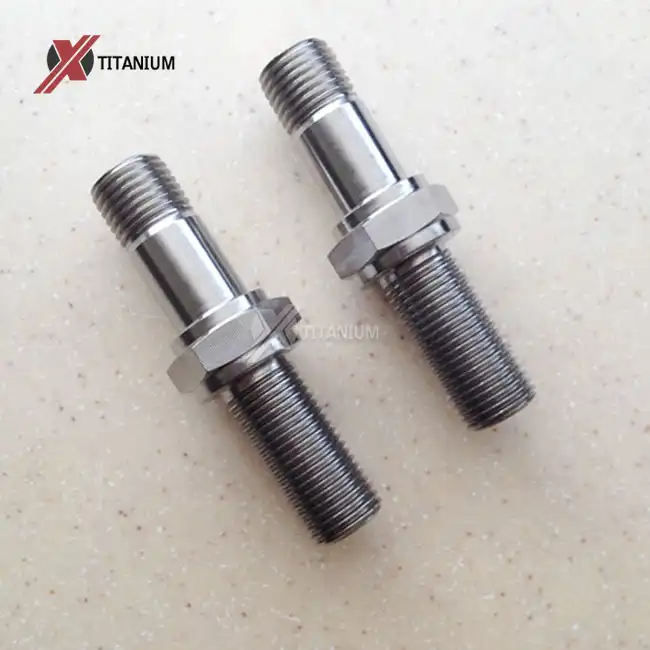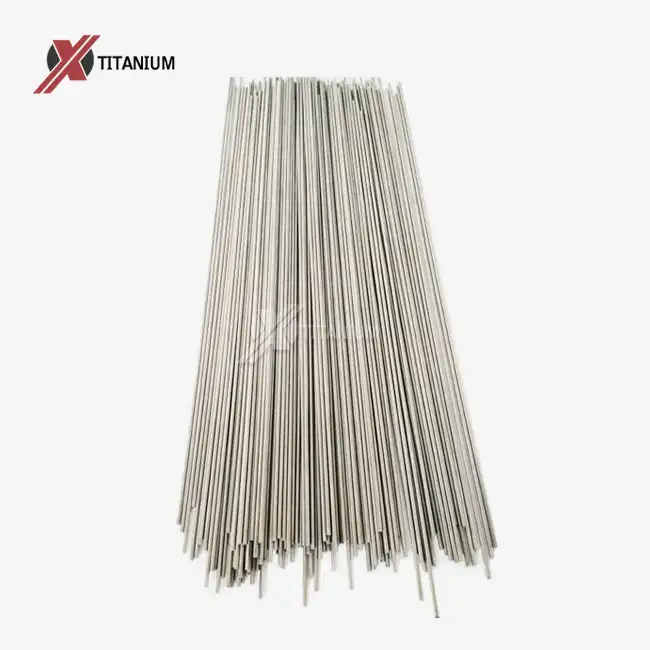The Science Behind Titanium's Corrosion Resistance
Formation of Protective Oxide Layer
Titanium's exceptional corrosion resistance stems from its ability to form a tenacious oxide layer. When exposed to air or water, titanium instantly reacts with oxygen to create a thin, invisible film of titanium dioxide (TiO2). This process, known as passivation, occurs spontaneously and rapidly, typically within nanoseconds of exposure.
The oxide layer acts as a barrier, separating the base metal from the surrounding environment. It's incredibly stable and adheres strongly to the underlying titanium, preventing further oxidation or corrosion. The thickness of this layer can range from 2 to 7 nanometers but is sufficient to provide robust protection against various corrosive agents.
Self-Healing Properties
One of the most remarkable aspects of titanium's corrosion resistance is its self-healing capability. If the protective oxide layer is scratched or damaged, it immediately begins to reform in the presence of oxygen or water. This self-repair mechanism ensures continuous protection, even in demanding environments where mechanical wear might be expected.
The speed of this self-healing process is crucial. It occurs faster than most corrosive processes, effectively preventing any significant damage to the underlying metal. This attribute is particularly valuable in applications where titanium rods are subjected to constant stress or abrasion.
Electrochemical Nobility
Titanium's position in the galvanic series contributes significantly to its corrosion resistance. It's more noble (cathodic) than many common metals, meaning it's less likely to undergo anodic dissolution in galvanic couples. This property is particularly beneficial when titanium rods are used in conjunction with other metals in marine or industrial settings.
The metal's high affinity for oxygen also plays a role in its electrochemical behavior. In most aqueous environments, titanium maintains a stable passive state, resisting breakdown even in the presence of aggressive ions like chlorides that typically cause pitting in other metals.
Factors Influencing Corrosion Resistance of Titanium Rods
Alloy Composition
While commercially pure titanium offers excellent corrosion resistance, specific alloy compositions can enhance this property further. For instance, Grade 5 titanium (Ti-6Al-4V) contains aluminum and vanadium, which can improve its strength and corrosion resistance in certain environments. The addition of small amounts of palladium or ruthenium in grades like Grade 7 or 11 can significantly boost resistance to reducing acids.
It's crucial to select the appropriate titanium grade based on the specific corrosive environment. Some alloys perform better in oxidizing conditions, while others excel in reducing environments. Understanding these nuances allows engineers to optimize the corrosion resistance of titanium rods for specific applications.
Surface Treatment and Finishing
The surface condition of titanium rods plays a vital role in their corrosion resistance. Various surface treatments can enhance the natural protective properties of titanium. For example, anodizing can thicken the oxide layer, providing additional protection and improving wear resistance. Chemical passivation treatments can ensure a uniform, stable oxide layer across the entire surface of the rod.
Surface finish also impacts corrosion resistance. A smooth, polished surface typically offers better resistance than a rough one, as it provides fewer sites for corrosion initiation. However, in some cases, a slightly rougher surface might be beneficial as it can promote the formation of a more stable oxide layer.
Environmental Factors
While titanium rods exhibit excellent corrosion resistance in a wide range of environments, certain conditions can affect their performance. Temperature plays a significant role; higher temperatures can accelerate corrosion processes. However, titanium generally maintains its passive state up to relatively high temperatures, outperforming many other metals.
The presence of specific chemicals can also impact corrosion resistance. For instance, titanium shows exceptional resistance to chloride environments, making it ideal for marine applications. However, it can be susceptible to attack by hot concentrated reducing acids. Understanding these environmental factors is crucial for predicting and optimizing the long-term performance of titanium rods in various applications.
Applications Leveraging Titanium Rods' Corrosion Resistance
Marine and Offshore Industries
The corrosion resistance of titanium rods makes them invaluable in marine environments. They're extensively used in offshore oil and gas platforms, desalination plants, and submarine systems. In these applications, titanium rods can withstand constant exposure to seawater, resist biofouling, and maintain structural integrity for extended periods.
Shipbuilding is another area where titanium rods shine. They're used in propeller shafts, heat exchangers, and other critical components where corrosion resistance is paramount. The longevity provided by titanium rods translates to reduced maintenance costs and improved reliability in marine operations.
Chemical Processing and Industrial Applications
In the chemical processing industry, titanium rods play a crucial role in handling corrosive substances. They're used in reactors, storage tanks, and piping systems where resistance to acids, alkalis, and chlorine compounds is essential. The ability of titanium to withstand these aggressive environments while maintaining its structural properties makes it a preferred choice for long-term installations.
Titanium rods also find applications in pulp and paper mills, where they resist the corrosive effects of bleaching agents and other chemicals used in the production process. In the textile industry, they're used in dyeing equipment, where their corrosion resistance ensures consistent quality and reduces contamination risks.
Aerospace and Defense
The aerospace industry heavily relies on titanium rods for their combination of high strength-to-weight ratio and corrosion resistance. They're used in aircraft structural components, hydraulic systems, and engine parts. In these applications, titanium rods not only resist corrosion from atmospheric exposure but also from hydraulic fluids and jet fuels.
In defense applications, titanium rods are used in naval vessels, submarines, and military aircraft. Their ability to withstand corrosive marine environments while maintaining high strength makes them ideal for these demanding applications. The longevity of titanium components contributes to the overall reliability and readiness of military equipment.
Conclusion
Titanium rods stand out as a paragon of corrosion resistance in the world of materials science. Their unique ability to form a self-healing protective oxide layer, coupled with their electrochemical nobility, provides unparalleled protection against a wide range of corrosive environments. From the depths of the ocean to the caustic world of chemical processing, titanium rods offer a reliable solution for applications demanding long-term durability and performance. As industries continue to push the boundaries of material capabilities, the corrosion-resistant properties of titanium rods will undoubtedly play a crucial role in shaping future innovations and engineering solutions.
At Baoji Chuanglian New Metal Material Co., Ltd., we specialize in manufacturing high-quality titanium rods that leverage these exceptional corrosion-resistant properties. Our expertise in titanium products, honed over a decade, ensures that we can provide tailored solutions for your specific needs. Whether you're in the aerospace, chemical processing, or marine industry, our titanium rods can enhance the longevity and performance of your applications. To learn more about how our titanium rods can benefit your projects, please contact us at info@cltifastener.com or djy6580@aliyun.com. Let's explore how we can elevate your corrosion resistance capabilities together.
References
1. Schutz, R. W., & Thomas, D. E. (1987). Corrosion of titanium and titanium alloys. ASM Handbook, 13, 669-706.
2. Donachie, M. J. (2000). Titanium: A Technical Guide. ASM International.
3. Revie, R. W., & Uhlig, H. H. (2008). Corrosion and Corrosion Control: An Introduction to Corrosion Science and Engineering. John Wiley & Sons.
4. Lütjering, G., & Williams, J. C. (2007). Titanium. Springer Science & Business Media.
5. Peters, M., Hemptenmacher, J., Kumpfert, J., & Leyens, C. (2003). Structure and Properties of Titanium and Titanium Alloys. Titanium and Titanium Alloys: Fundamentals and Applications, 1-36.




_1751274537597.webp)